Abstract
The World Medical Association was set up in 1947 in the wake of outrage about war crimes committed by doctors in Hitler's Germany. For nearly 50 years it has lurched from one controversy to another, arguing within itself about its funding, its voting system, and the representativeness and political affiliation of some of its member medical associations. The BMA withdrew from the association in 1984, supporting a breakaway "Toronto" group including Canada, the Scandinavian countries, the Netherlands, Ireland, and Jamaica. All but Britain and Jamaica have now rejoined and membership is growing, but the association is still struggling to gain credibility and clout. After 20 years of part time stewardship the recent appointment of a new full time secretary general has fuelled expectations that internal reforms will be implemented, and the WMA's standing and profile improved.
Full text
PDF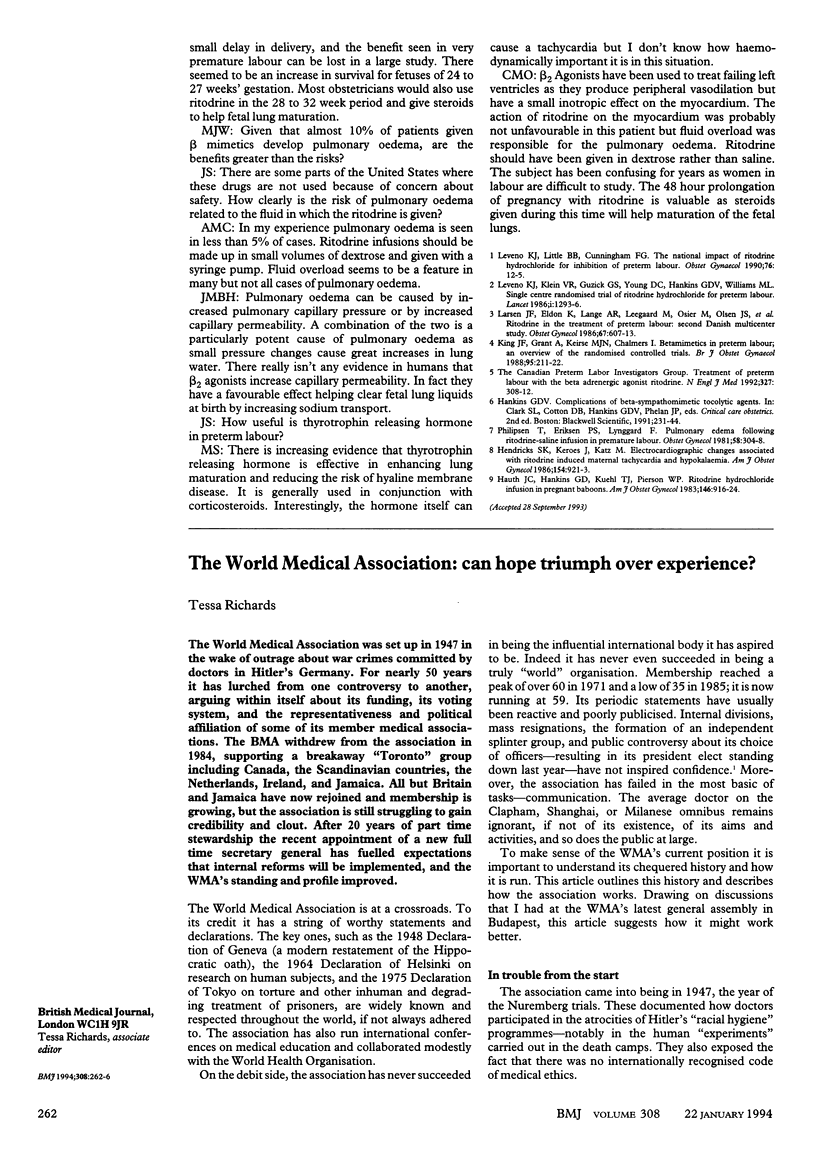
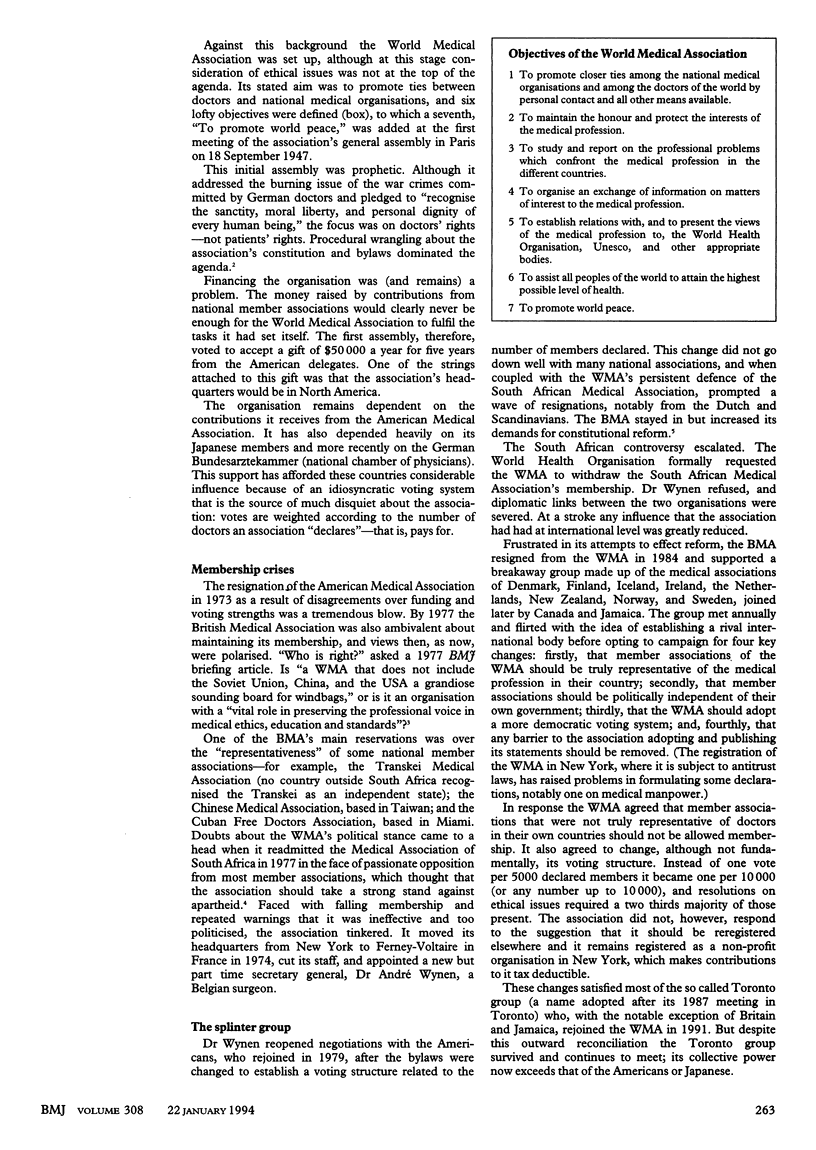
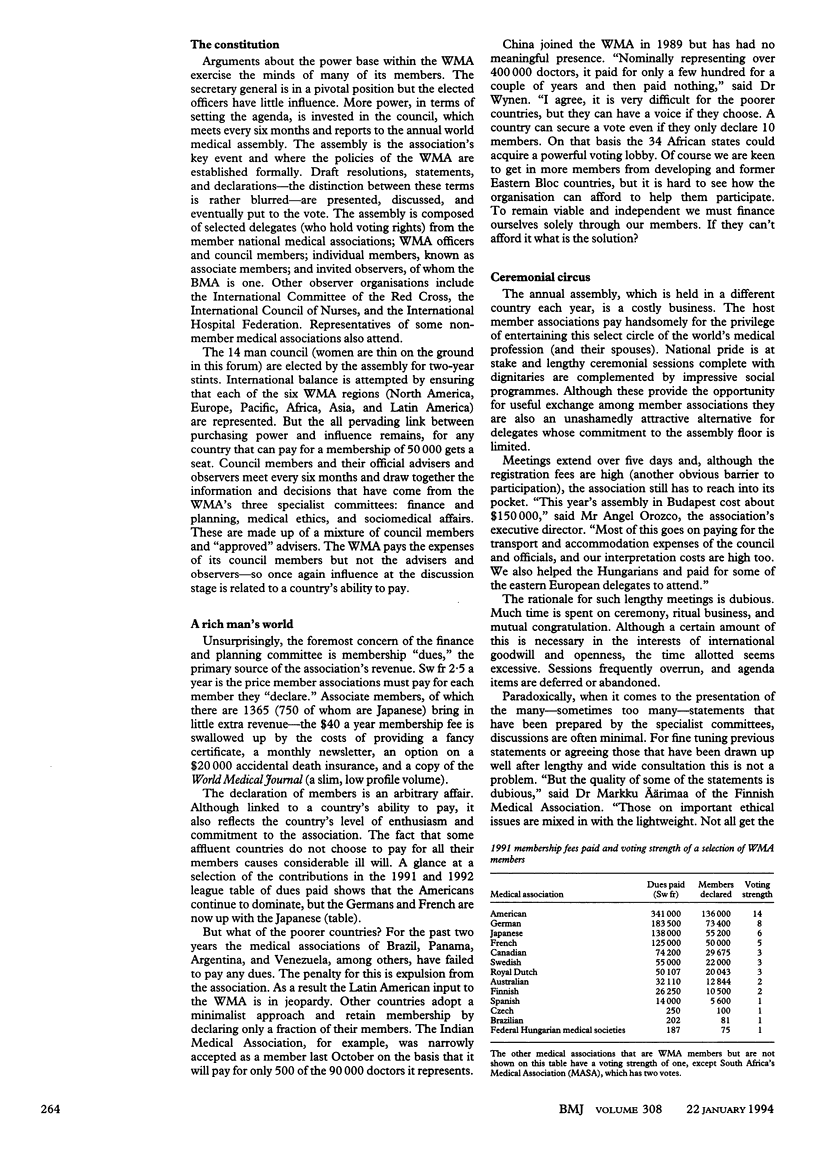
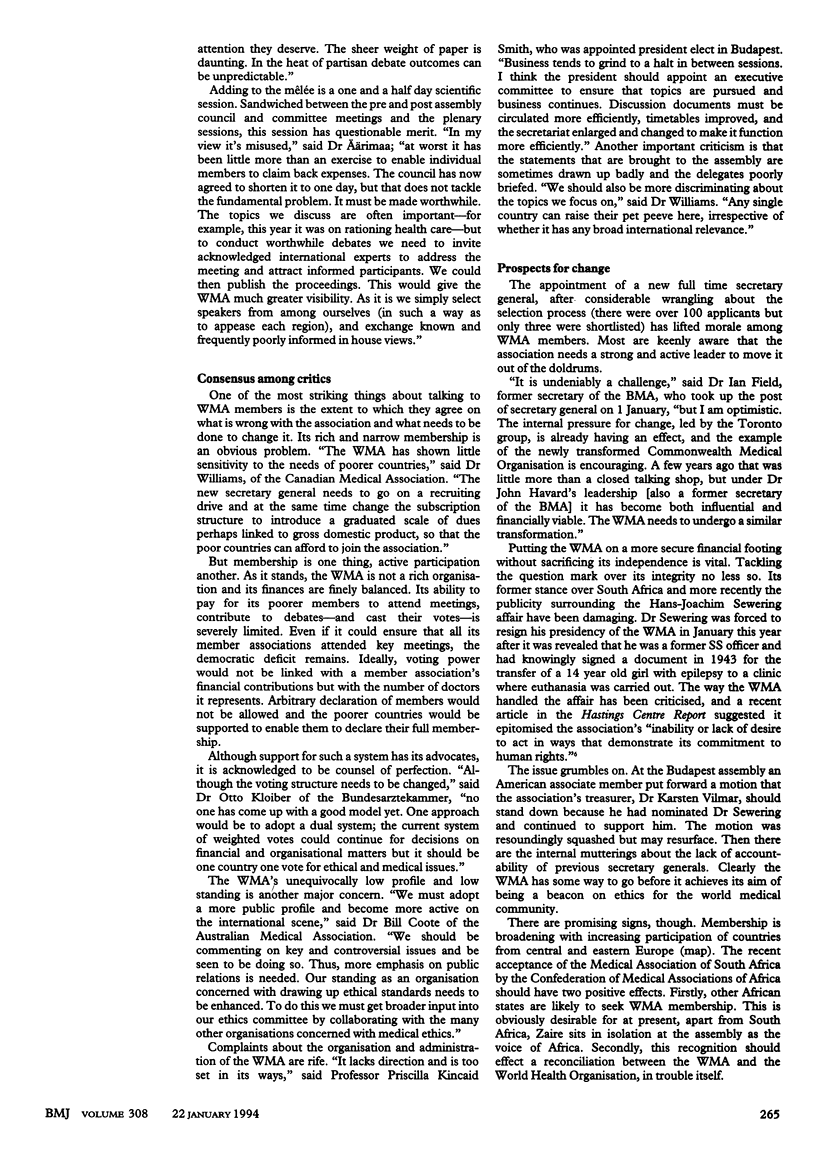
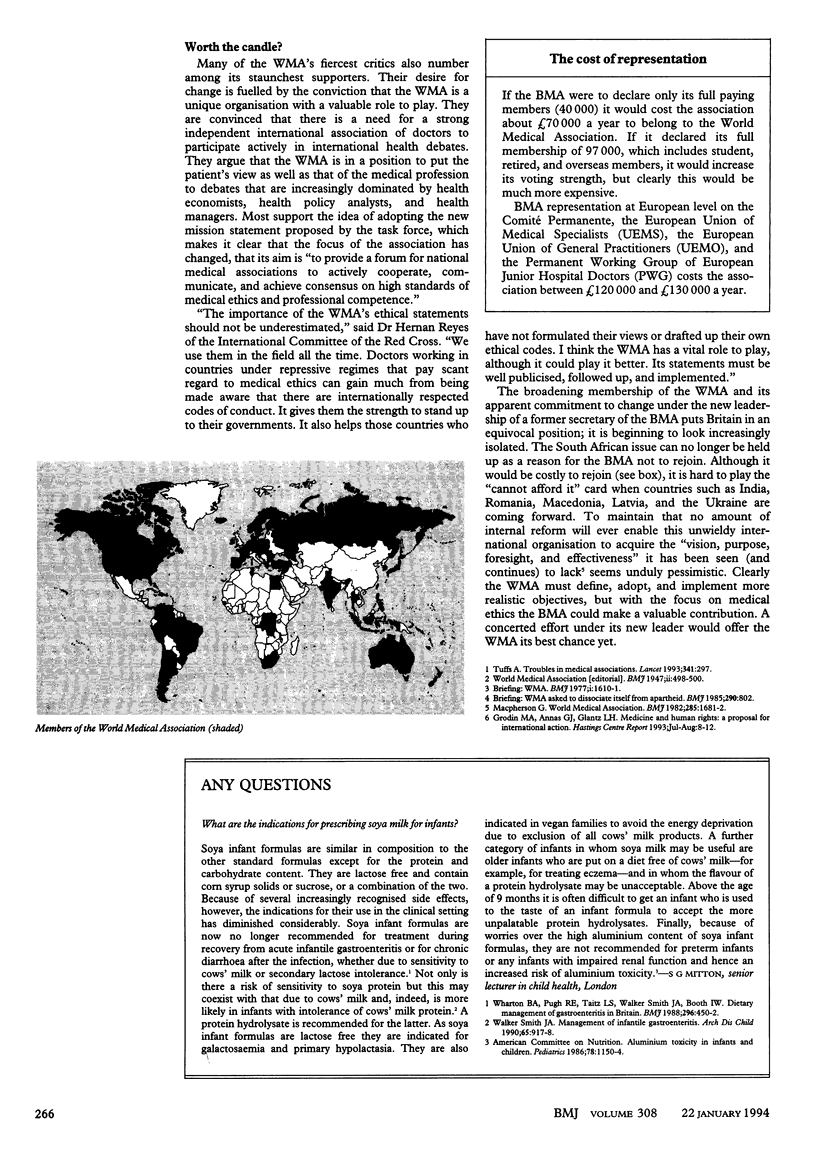
Selected References
These references are in PubMed. This may not be the complete list of references from this article.
- Macpherson G. World Medical Association. Br Med J (Clin Res Ed) 1982 Dec 11;285(6356):1681–1682. doi: 10.1136/bmj.285.6356.1681. [DOI] [PMC free article] [PubMed] [Google Scholar]
- Tuffs Annette. Germany: troubles in medical associations. Lancet. 1993 Jan 30;341(8840):297–297. doi: 10.1016/0140-6736(93)92635-7. [DOI] [PubMed] [Google Scholar]
- Walker-Smith J. A. Management of infantile gastroenteritis. Arch Dis Child. 1990 Sep;65(9):917–918. doi: 10.1136/adc.65.9.917. [DOI] [PMC free article] [PubMed] [Google Scholar]
- Wharton B. A., Pugh R. E., Taitz L. S., Walker-Smith J. A., Booth I. W. Dietary management of gastroenteritis in Britain. Br Med J (Clin Res Ed) 1988 Feb 13;296(6620):450–452. doi: 10.1136/bmj.296.6620.450. [DOI] [PMC free article] [PubMed] [Google Scholar]


